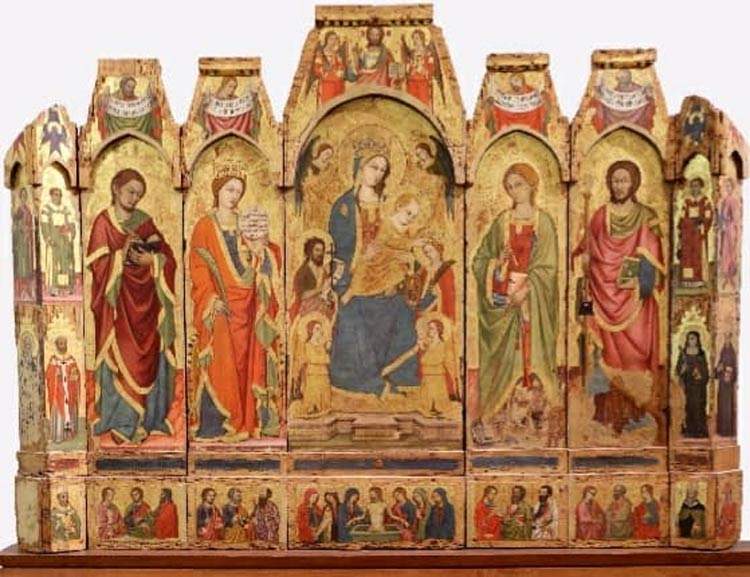After the much controversy over the free restoration of the masterpiece by the Master of the Trapani Polyptych came several clarifications, both from the Friends of the Pepoli Museum association (the Agostino Pepoli Regional Museum in Trapani is where the early 15th-century polyptych being restored is kept) as well as by the Sicily Region’s councillor for cultural heritage and allidentity, Alberto Samonà, who had praised the gesture of the two restorers (Elena Vetere and Gaetano Alagna), who lent their work free of charge, and had written that theirs is an “example of good practice,” hoping for its dissemination.
Samona’s words raised a chorus of indignation because it seemed that the councilor was praising the free work. Clarifying the circumstances of the intervention was first the association of the friends of the museum: president Lina Novara wrote a note to communicate that the association “wishes to clarify that, in accordance with the statutory purposes that provide for ’activities of general interest (art. 5 D. L. July 3, 2017 no. 117), taking into account the set of resources, including voluntary and free in such activities’ as well as to ’support and help all initiatives of the Agostino Pepoli Regional Museum aimed at the enhancement of artistic and cultural heritage, lending its work both directly and indirectly’, (art. 2 of the Statute), following the reports of the technicians of the Pepoli Regional Museum of Trapani on the need for extraordinary maintenance work on the aforementioned Polyptych, offered to finance the intervention and the related shielding of the room where the work is exhibited, in order to properly preserve it and the other works that are in the room.” For the maintenance work, the association, continues Novara, “turned to its members Gaetano Alagna and Elena Vetere, experienced restorers, who, in the spirit of volunteerism that animates all the members of the Association, lent their work for free.”
It was therefore a spontaneous gesture of the two restorers. And Samona yesterday also clarified his position. “The work cannot and should not be free, but should be justly paid,” he wrote on his Facebook page. “Specifying this seems to me to be necessary to dispel any doubts about how I think. I thought this way yesterday when I was in the journalistic profession (I know all too well the situation of so many underpaid colleagues) and I think the same way today as a cultural heritage councillor.”
“The misunderstanding,” he explained, “arose from a press release later published on this page, but missing some essential elements. In fact, it is about the initiative of the Friends of the Pepoli Museum Association, which using two restorers who are members of the same association, wanted to offer a restoration work to the museum of Trapani: a symbolic but significant gesture, aimed at making everyone aware of the care for art that every citizen should have, also through awareness actions carried out by the associations, as happened in this specific case. My reference to good practice was precisely related to awareness-raising actions, which can engage everyone, citizens, associations, individuals and institutions, in the name of art and culture, but unfortunately due to imprecise wording on the part of my press office, it seemed that in the statement I was calling for the spread of the practice of free labor. Nothing could be more wrong and far from my thinking and how I am carrying out my mandate!”
“For the past year,” Samonà recounted, “I have been making inspections to many restoration sites, also to personally realize the conditions of those who work behind the scenes and to listen to the problems from their viva voce, and three weeks ago I met with a delegation of restorers in the council office, who represented to me the problems and difficulties of this category. In addition, also in recent weeks I responded to representatives of an association representing many restorers who had asked me for an appointment, writing to them that I will personally promote a meeting to address together and in a synergistic way the problems of the category.” The alderman then concluded lapidarily, “Work should always and in any case be respected.”
In the photo: the restored polyptych
 |
| Free restoration, Sicily's culture commissioner clarifies, "work should be paid for" |
Warning: the translation into English of the original Italian article was created using automatic tools. We undertake to review all articles, but we do not guarantee the total absence of inaccuracies in the translation due to the program. You can find the original by clicking on the ITA button. If you find any mistake,please contact us.